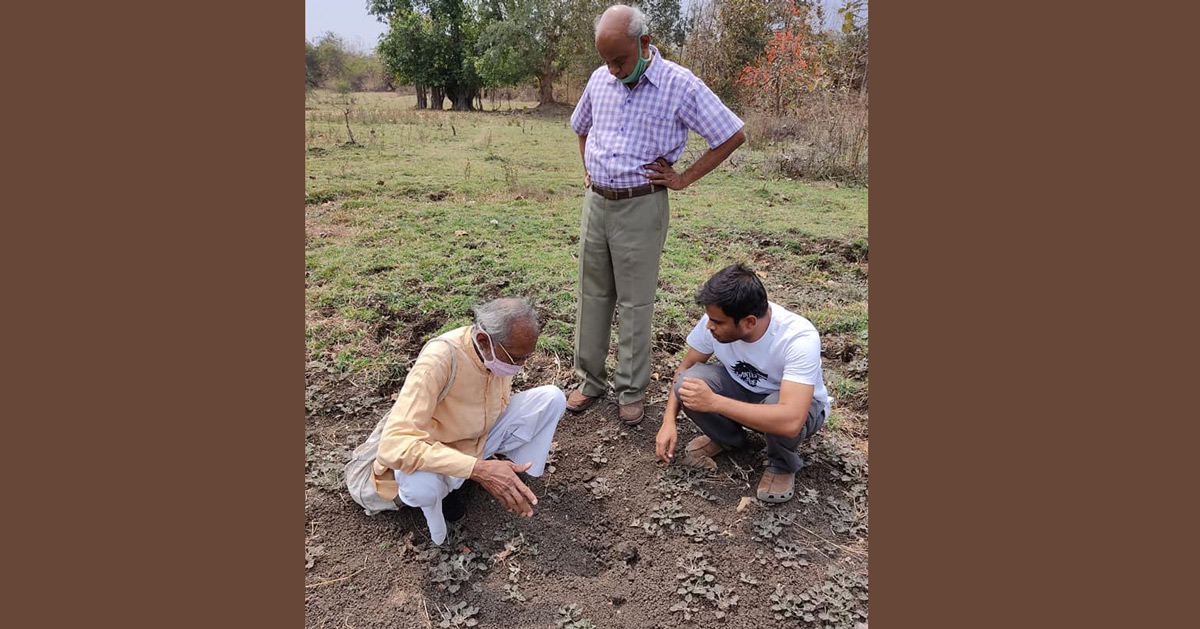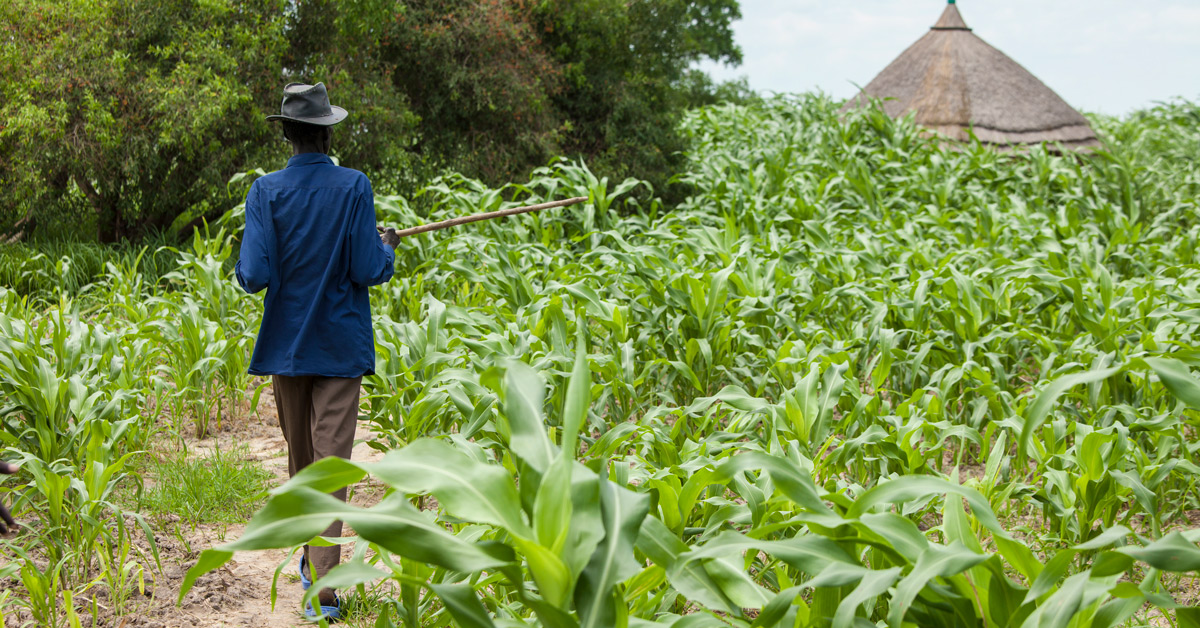| Welcome to Review 551, which covers GMOs in general and some encouraging alternatives to the GMO-agrochemical treadmill, with news from across the world. According to a new United States Department of Agriculture (USDA) report, “Between 1990 and 2020, prices paid by farmers for crop seed increased by an average of 270 percent, while seed prices for crops grown predominantly with genetically modified (GM) traits rose by 463 percent, substantially more than commodity output prices.” Agricultural journalist Alan Guebert asks, “How would most of 'us' explain this incredible, 193 percent price increase in GM seed over non-GM seed during this period?” He answers his own question: “No doubt, many of us would link the price increase to the tightening grip that one seed giant was having on GM traits in the US corn, soybean, and cottonseed markets. USDA confirms this in its detailed analysis: By 2009, GM traits owned or licensed by Monsanto were used on 95 percent of soybean acres, 81 percent of corn acres, and 79 percent of cotton acres in the United States.” Guebert also blames the US government for not strengthening antitrust rules and thus allowing that market concentration. A report from the USDA shows that about 55 percent of the total harvested cropland in the United States is grown with varieties having at least one GM trait and the most common GM trait is herbicide tolerance, followed by insecticidal traits. The USDA notes the increased market concentration in agribusiness — for corn and soybean seed, two companies account for about 70 percent of US sales. It adds, “Private seed companies lead the development of GM traits — a shift away from public institutions” — stimulated by patents. GMO salmon firm AquaBounty has recorded a 26% drop in revenue and a second quarter net loss of $6.5 million, as compared to a $5.5 million loss in the second quarter of 2022. The firm is still looking to improve revenue by expanding its non-GMO salmon output in Canada. Yield10 Bioscience shares have lost more than half of their value and hit an all-time low after the agricultural bioscience company said it was raising $3.7 million in a public offering. Yield10 shares were recently changing hands at 40 cents, down 60%. Yield10 is partnering with Rothamsted Research in the UK in a programme to develop and field trial GM camelina sativa plants containing fish-like oil. Rothamsted is “strategically funded” with UK taxpayer money via the national science funding body, the BBSRC. GMWatch believes that the UK government is backing a GMO failure-in-the-making. Yield10 has also announced “positive results” in the first field test of multi-herbicide tolerance traits in GM camelina. This camelina is tolerant to imidazolinone and sulfonylurea herbicides. It’s destined for the biofuels market. 
Akash Naoghare comes from Nagpur, a city in Central India. He is currently studying for a master’s degree in food and development at the Institute of Development Studies, University of Sussex, UK. Before coming to the UK, he worked with farmers in India to promote seed saving and agroecological practices. In an interview with GMWatch’s Claire Robinson, he recounts his first-hand experience of the effects of GM Bt cotton and GM herbicide-tolerant cotton on Indian farmers and culture — and points the way to a more sustainable future. Rather than engaging with issues around public health, environmental protection and agricultural livelihoods, the Indian government is disregarding facts and logic before the Supreme Court to push GM mustard, writes Aniket Aga, anthropologist and author of the book, Genetically Modified Democracy: Transgenic crops in contemporary India. Aga writes that the government “has not placed the full biosafety dossier of GM mustard in the public domain, despite the provisions of the Right to Information Act and a declaration to this effect by the Genetic Engineering Appraisal Committee of the Environment Ministry. Nor is it adequately responding to criticisms from agricultural scientists that already available non-GM mustard hybrids have better yields than GM mustard.” The Paraguayan government has released GM HB4 glufosinate ammonium-tolerant wheat, from the Bioceres company (also known as “the Argentine Monsanto”), with a resolution that has not yet been made public and that excluded citizen participation. A campaign, “Bread without Poison”, promoted by food workers, social and peasant organisations, denounces the serious consequences that the crop can bring: More pesticides, evictions and deforestation. BASE-IS is that part of the campaign that aims to gather signatures to reverse the government’s resolution. BASE-IS says, “Wheat is one of the bases of our diet, so the entire population would be even more exposed to the daily consumption of herbicides and in particular to glufosinate ammonium, a highly toxic herbicide. The most exposed to its risks are those who consume the most wheat — in the form of bread, cookies, and noodles — boys and girls, particularly those from low-income families. This [GM wheat] violates their rights to adequate and healthy food.” Washington is threatening to expand its sanctions regime to Mexico, its second largest trade partner, for wanting to protect its own native crop diversity as well as its citizens’ rapidly worsening health. Mexico is trying to ban the consumption of GMO crops. On December 31, 2020 Mexico’s President Andrés Manuel López Obrador issued a decree calling for all imports of GMO crops, including corn, as well as the “probably” carcinogenic weedkiller glyphosate, to be phased out by the end of January 2024. Crucially, the decree enjoyed the support of Mexico’s Supreme Court. While Mexico has since then somewhat softened the decree, at the beginning of June, Washington convened a trade dispute panel, arguing that the new decree still violates the US-Mexico Canada free trade agreement. But if the US and Canada’s escalation of their trade dispute with Mexico was meant to break the Mexican government’s resolve, it appears to have had the opposite effect. Mexico’s President Andres Manuel Lopez Obrador recently announced that he will sign an agreement with his country’s tortilla makers that ensures they only use non-GMO white corn while also setting new 50% tariffs on white corn imports. Lopez Obrador said that tariffs on white corn imports from countries that don’t have trade deals with Mexico will promote more domestic purchases. The tariffs won’t apply to the US or Canada. Mexico, the birthplace of modern corn, produces most of the white corn used to make the country’s staple tortillas but imports large quantities of yellow corn, which is mostly GMO, for livestock feed. Most of the yellow corn comes from the US, which represents a $5 billion market for the US. The United States has denied a request by Mexico to jointly conduct scientific research on the health impact of GM corn, a Mexican government official said. Mexico has repeatedly called on the US to work together on scientific studies amid a conflict over the Latin American country’s plans to limit the use of GM corn. The US, however, denied this request and made it clear it will not participate in new scientific studies with Mexico, Mexican Deputy Agriculture Minister Victor Suarez said. The two countries discussed Mexico’s request, including during a visit by US Agriculture Secretary Tom Vilsack, but the US will not oblige, Suarez said. “They did not want to establish a period in which the two parties agree to carry out impact studies on animal health and human health,” Suarez said. On October 3, 2022, the Kenyan Government lifted the ban an import and cultivation of GMOs that had been in place for ten years. The Kenyan Peasants League (KPL) filed a lawsuit against that decision and the High Court decided the ban must remain until the matter is judged in court. The Government appealed the decision, but the Court of Appeal sided with the High Court and KPL and left the ban in place. In its decision, the Court cited the lack of public participation, which was one of the main arguments of KPL, based both on the Kenyan Constitution and on the UN Declaration on the Rights of Peasants and Other People Working in Rural Areas (UNDROP). The struggle is far from over, since a complete trial and judgment has not happened yet, but these decisions are good signs and KPL is determined to have the Rights of Peasants recognised and protected. 
Preliminary findings from a new project by A Bigger Conversation have found that UK agroecological farmers and growers are wary of genetic technologies in agriculture. Their concerns range from unforeseen consequences of genetic manipulation to adverse effects on diversity in the food and farming system. These views were expressed as part of a wider project — Agroecological Intelligence — which is putting farmer voices at the centre of an investigation into which technologies are and, crucially, are not appropriate for an agroecological farming system. Discussions with approximately 50 farmers and growers from across the UK as part of the project included a range of technologies, from hydroponics to precision agriculture. The ancient grain einkorn is grown as a niche crop in Europe. But as heatwaves shrivel the region’s grain production, it may hold the key for helping crop breeders in Europe to develop bread wheat varieties with improved hardiness, enhanced disease resistance and higher yields. Einkorn has maintained a larger gene pool than modern bread wheat, which has reduced genetic diversity. Now scientists in Saudi Arabia have mapped the genome of einkorn in an attempt to identify useful genes that could be brought back into wheat to make it more resilient. A media report says the scientists plan to their knowledge of the genome to introduce favourable genes into wheat via marker assisted selection with conventional breeding, a non-GM approach. Let’s hope they stick to this plan and avoid being seduced into genetic engineering approaches. Of course, we still have to be alert to attempts to patent certain conventionally bred crops, which we oppose. Incidentally, your GMWatch editor regularly makes bread using organically grown einkorn flour — it's delicious! 
As the food and climate crises continue to cause suffering around the world, one under-appreciated solution — neglected crops — could be a powerful tool to alleviate both crises in one of the worst affected regions: Africa. Neglected crops — including grains such as sorghum and millet and vegetables such as amaranth, eggplant, and kale — are also known as “indigenous”, “lost”, “native”, “orphan”, “traditional”, or “underutilised” crops, or as ingredients in “forgotten foods”. Why bring back neglected crops? Expanding their use can help diversify agriculture and food systems and introduce a greater variety of foods into global supplies — including more nutritious cereals, fruits and vegetables, and roots and tubers — while building resilience to climate change and providing employment and alternate sources of income for farmers. Neglected crops can be superior to dominant staples due to their inherent adaptation to the natural environment and local conditions. Neglected crops tolerate irregular rainfall and infertile soils better, thrive in dry conditions and even droughts better, and often succeed where other crops fail. A study in Andhra Pradesh compares three prevalent farming methods, analysing their overall benefits such as production, economic impact and social and health implications. This first-of-its-kind research, led by impact data and analytics provider GIST Impact and supported by the Global Alliance for the Future of Food, used True Cost Accounting methods to compare the major economic, social, and health impacts of natural farming with the three existing and still dominant farming systems in the Indian State of Andhra Pradesh — tribal farming, rainfed dryland agriculture, and chemically-intensive farming in the delta region. The study concludes that community-based natural farming offers superior benefits in terms of higher yields, crop diversity and income for farmers. While natural farming is being increasingly adopted by farmers in Andhra Pradesh and other states, standardisation can be achieved only through government support. By using fewer pesticides to control coffee berry borer (CBB) populations, Hawaiian coffee farmers may actually increase coffee production, harvested coffee quality and even economic gains. This outcome regarding chemical controls relies upon increased plant cultural controls — namely, more frequent and strategic harvesting of coffee cherries. This is according to a comprehensive analysis from researchers in Hawaii who studied integrated pest management strategies on 10 Hawaiian coffee farms over two years. The Hawaiian study’s findings are in line with those of similar studies in Colombia. Britain’s farmers increased their yields of major crops last year despite significant reductions in fertiliser use, according to research. Making artificial fertilisers relies on natural gas, the price of which rose sharply last year after Russia’s invasion of Ukraine. Fertiliser prices more than tripled, from £233 a tonne in 2020 to £766 a tonne in 2022, which farmers say led to a reduction in their use. Data from the UK government’s Department for Environment, Food and Rural Affairs (Defra) published last week revealed that for key crops — wheat, barley, oilseed rape and sugar beet — fertiliser use decreased by an average of 27% compared with the 2010-19 average. Despite this, yields of those crops were 2.4% above average compared with the same period. The move away from artificial fertilisation had led to a return to mixed farming methods among farmers, farmers said. This includes livestock farming, which is the best way of cycling nutrients into soil. According to recent research by No Patents on Seeds!, more than one thousand conventionally bred plant varieties are already affected by European patents. Despite European patent law specifically prohibiting patents on plant varieties, this development has crept in unnoticed by the public. As a consequence, the current European plant breeding system is facing a deep crisis, leaving traditional breeders facing a serious threat — the possible end of their current freedom to operate. These are some of the findings in an expanded version of a report published by No Patents on Seeds!. Johanna Eckhardt of No Patents on Seeds! said, “Our research shows that more and more new varieties brought onto the market are being covered by patents. Many of the conventionally bred varieties are even covered by claims in several different patents. We need political decisions to make sure that biodiversity needed by all plant breeders is not grabbed by big companies.” It is mostly international companies from the agrochemical sector that are filing these patents — such as Bayer, BASF, Syngenta, and Corteva, but also some traditional breeders, such as Rijk Zwaan and KWS. “A Tale of Two Seeds: Sound and Silence in Latin America’s Andean Plains” has won an international award, the Prix Are Electronica. The work is a sound study of destructive Roundup Ready soy monocultures and the resilient indigenous grain amaranth that has subverted these GMO monocultures. The artists behind the sound study said, “In this sonic interrogation of Colombian soils, we will highlight amaranth’s symbolic role in the resistance to modern forms of colonialism most strongly represented by genetic engineering, the privatisation of seeds and land sovereignty. Soy monoculture and the forms in which it [soy] is being mutated in order to dominate and wipe out the amaranth is a modern form of colonialism and will have a dramatic impact on the future of Latin American territories.” .................................................................. We hope you’ve enjoyed this newsletter, which is made possible by readers’ donations. Please support our work with a one-off or regular donation. Thank you! |